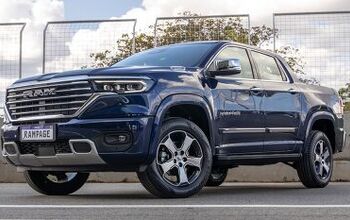U.S. Congress Stops Ethanol Subsidies & Tariff on Brazilian Imports

After spending thirty years and $45 billion dollars encouraging the use of ethanol the United States Congress has adjourned for the year without extending tax subsidies to the to ethanol industry. The subsidy currently costs taxpayers $6 billion a year. A related import tariff on Brazilian ethanol was also allowed to expire. With a wide group of critics, cutting across political and ideological lines, the tax break had become unpopular in Washington. Business interests in the food and cattle industry as well as environmentalists opposed the law which paid 45 cents per gallon to fuel blenders to subsidize their costs for producing E10 gasoline/ethanol blend. The subsidy resulting in corn being diverted from feedlots and food processors to ethanol production, raising the cost of many foodstuffs. The environmental movement now opposes corn ethanol as a fuel it because it considers the fuel and its production to be “dirty”, in the words of Friends of the Earth.
Ethanol trade groups have said that the industry would survive the loss of the subsidy, now that the US ethanol production industry has become established. The industry is still protected by congressional mandates that call for 15 billion gallons of renewable fuels by 2015 and 36 billion gallons by 2022.
The ethanol issue involves a number of powerful players, corn growers and affiliated industries on one side and food interests, automakers and engine builders on the other. Then there’s the EPA to consider. The EPA has approved the use of E15, an 85/15 gasoline/ethanol blend, for use in post 2001 cars. Manufacturers say that without modifications, E15 will damage engines. In February, in a bipartisan move the House voted 285-136 to block the EPA from moving ahead with E15 regulations.
While ending the subsidy would seemingly discourage ethanol’s use, the end of the 54 cents per gallon tariff on imported Brazilian ethanol might do more to encourage that use than the subsidies did. Brazil is one place where it makes sense to use ethanol as a fuel because of Brazil’s huge sugar industry. The ratio of energy needed to produce it vs the energy obtained in the fuel for ethanol made from corn is barely greater than one, 1.3:1, compared to 2:1 for using sugar beets and 8:1 for sugar cane, the feedstock for Brazil’s ethanol. It costs half as much to make Brazilian cane ethanol as it does to make American corn ethanol. According to one academic study transportation costs to US ports eliminate that competitive advantage, but if that was a certainty, Brazilian sugar cane producers wouldn’t have threatened to start a trade war if the tariff wasn’t ended.

Ronnie Schreiber edits Cars In Depth, the original 3D car site.
More by Ronnie Schreiber
Latest Car Reviews
Read moreLatest Product Reviews
Read moreRecent Comments
- Analoggrotto Hyundai is the greatest automotive innovator of the modern era, you can take my word for it.
- MrIcky My maintenance costs are pretty high because I enjoy doing questionable things (when it is safe to do so of course). Tires and frequent oil changes seem a small price to pay.
- MaintenanceCosts Dammit, my Highlander's two years too old.
- Analoggrotto so what
- Shipwright I wonder where Speedmaster is based. Oh Looky! it's China! who would have thought.


































Comments
Join the conversation
Did Cargill quit hiring enough out-of-office federal-level politicians and retiring bureaucrats?
This surprises me, usually Federal government decision can always be predicted by simple rule: it will always act such that deficit is increased. That said, there is still plenty of ethanol boondoggle left. Consider _1 A law mandating ethanol in fuel regardless of how uncompetitive it is. Can you say centrally planned economy? _2 The bio-ethanol super boondoggle. Bio-ethanol is called "next generation" ethanol because it beats regular ethanol is all categories: even more expensive, even bigger subsidies, and even more outrageous centrally-planned mandates. Recently the feds had to admit that bio-ethanol goals are not feasible. BTW regarding "subsidies" for oil: the oil industry pays tens of billions in taxes (vs. zero for GE) and does get some tax relief. I would agree that corporate tax policies are too complex, but comparing the oil industry (which pays taxes and would be competitive regardless of tax policy) to the ethanol industry (a hot-house flower that would wither if pulled from the taxpayer teat) is pretty silly.